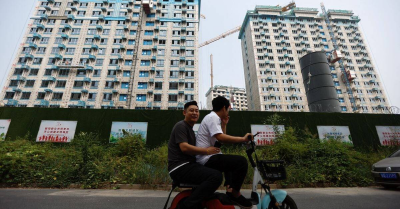Reuters-Exclusive China govt advisers call for steady growth target in 2024 more stimulus
November 22, 2023 4 min 648 words
这篇报道揭示了中国政府顾问们对2024年经济增长目标的建议,主张保持4.5%到5.5%的稳健增长,并倡导通过财政支出推动明年的增长。这反映了对于保持就业和实现长期发展目标的迫切需求。然而,值得关注的是,经济增长主要仰赖财政刺激,尤其是基础设施投资,而非在企业信心未完全恢复的情况下依靠企业投资。对此,一位政府经济学家强调了采取扩张性财政和货币政策以刺激总需求的必要性。然而,部分专家也指出,长期来看,应更加注重结构性改革,减少对房地产和基础设施的依赖,促进消费和市场资源配置。报道反映了在政治环境下,市场导向性改革可能面临难以达成的共识,因此经济刺激可能成为短期内的主要手段。整体而言,这表明中国在经济政策制定上的挑战,需要在促进增长和实现结构性调整之间取得平衡。
Chinese government advisers will recommend economic growth targets for next year ranging from 4.5% to 5.5% to an annual policymakers' meeting, as Beijing seeks to create jobs and keep long-term development goals on track.
Five of the seven advisers who spoke with Reuters said they favoured a target of around 5%, matching this year's goal. One adviser will propose a 4.5% target, while the other suggested a 5.0-5.5% range.
The proposals will be made next month at the ruling Communist Party's annual Central Economic Work Conference that discusses policy plans and the outlook for the world's second-largest economy.
Reaching such targets would require Beijing to step up fiscal stimulus, the advisers said, given that this year's growth has been flattered by last year's low-base effect of COVID-19 lockdowns.
"We need to adopt expansionary fiscal and monetary policy to stimulate aggregate demand," Yu Yongding, a government economist who advocates for a growth target of roughly 5%, told Reuters.
"Corporate investment demand will not be strong as the confidence of companies has not recovered, so we need to expand infrastructure investment," added Yu, who also favours a budget deficit topping 4% of economic output.
The other advisers spoke on condition of anonymity due to the closed-door nature of the discussions. Top leaders are expected to endorse the target at the December meeting, although it will not be announced publicly until China's annual parliament meeting, usually held in March.
In October, China unveiled a plan to issue 1 trillion yuan ($139 billion) in sovereign bonds by the end of the year, raising the 2023 budget deficit target to 3.8% of gross domestic product (GDP) from the original 3%.
Chinese leaders have pledged to "optimize the structure of central and local government debt", suggesting the central government has room to spend more as its debt as a share of GDP is just 21%, far lower than 76% for local governments.
"We are stepping up fiscal policy support," said another adviser, to make the "difficult" 2024 target "achievable."
Monetary stimulus is expected to play a more limited role as the central bank remains concerned a widening interest rate differential with the West may further weaken the yuan and encourage capital outflows.
"The space for monetary policy could be bigger if we have greater tolerance for exchange rate fluctuations," said Guan Tao, global chief economist at BOC International and a former official at the State Administration of Foreign Exchange (SAFE).
China’s economy grew only 3% in 2022, one of its worst performances in nearly half a century. A Reuters poll in October showed that economists expect it to grow 5.0% in 2023 and 4.5% in 2024, although some have since raised their forecasts.
In 2022, President Xi Jinping laid out a long-term vision of "Chinese-style modernisation" at a key party meeting, with a goal of doubling China's economy by 2035 that government economists say would require average annual growth of 4.7%.
The stuttering post-COVID recovery has prompted many analysts to call for structural reforms that tilt the drivers of economic growth away from property and infrastructure investment and towards household consumption and market-allocation of resources.
Absent that, these economists warn, China may begin flirting with Japan-style stagnation later this decade.
Beijing has been trying to reduce economic reliance on property, channelling more resources into high-tech manufacturing and green industries, but has struggled to boost consumer and investor sentiment.
Policy insiders believe more fundamental changes, especially a revival of market-oriented reforms, are unlikely due to the political environment, under which the state has increased its control over the economy, including the private sector.
"If there is no consensus on reforms, we will have to use stimulus to drive growth, even though it will not be sustainable,” a third adviser said.
($1 = 7.2111 Chinese yuan renminbi)

